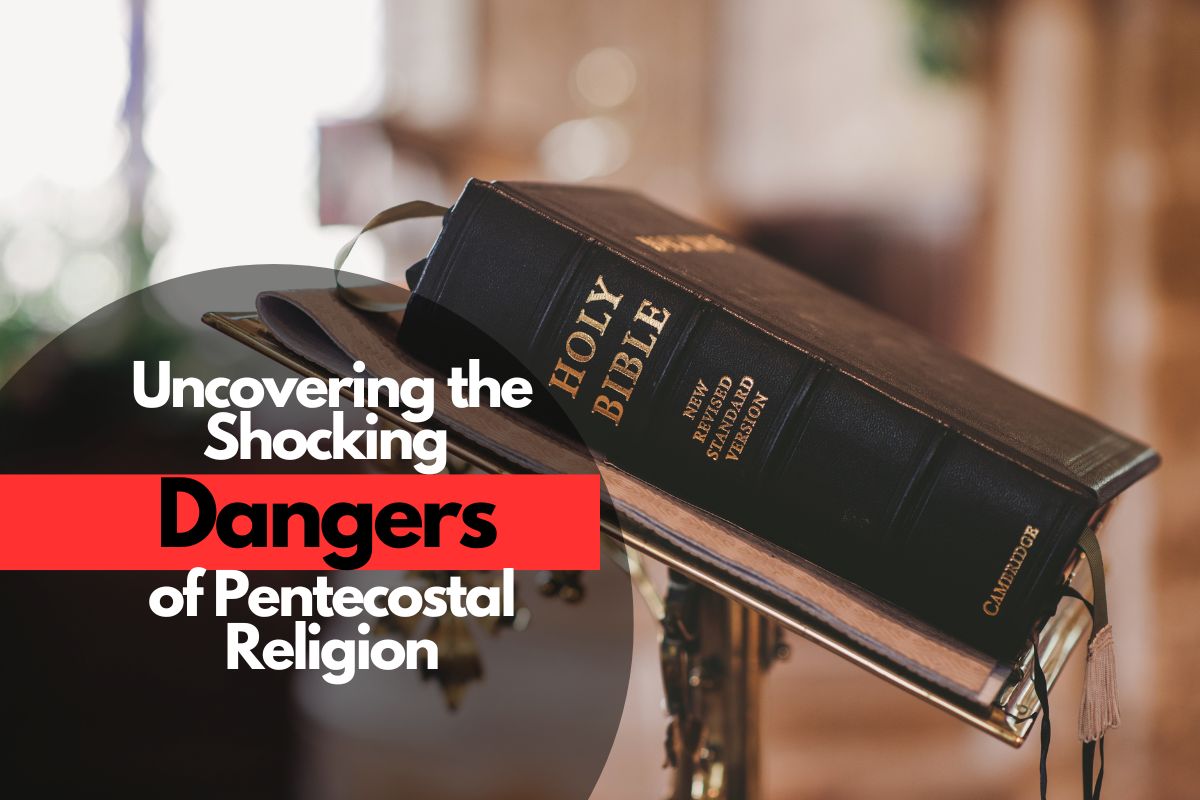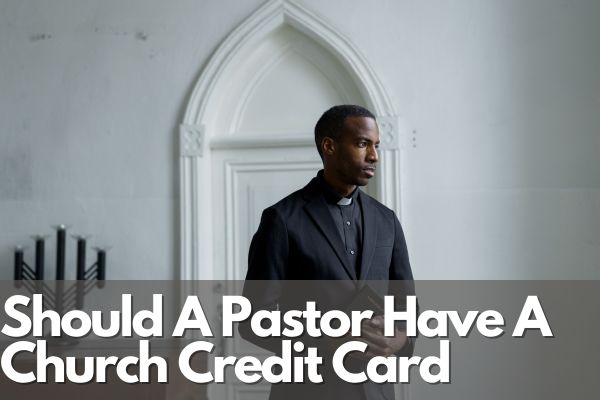Many people ask, ” How do I get sponsorship for my church?” You may wonder where to start if you want sponsorship for your church. Sponsorship can be an effective way to fundraise for your church’s activities, events, and programs. However, finding the right sponsors can be a daunting task.
This article will provide tips and strategies for getting sponsorship for your church. From identifying potential sponsors to creating compelling sponsorship proposals, we’ll guide you through securing support for your church’s initiatives.
With the right approach and perseverance, you can find sponsors who share your values and are willing to invest in your church’s mission.
How Do I Get Sponsorship For My Church
Securing sponsorship for your church can be a great way to raise funds for various activities, programs, and events. If you’re wondering how to get sponsorship for your church, here are some steps to consider:
1. Identify Potential Sponsors
Look for businesses or organizations that align with your church’s values and mission. Consider companies that are involved in your community or have a history of supporting similar causes.
2. Craft A Sponsorship Proposal
Create a proposal that outlines the benefits of sponsoring your church. Include details about the event or program you’re seeking sponsorship for, and explain how the sponsor’s contribution will make a difference. Be sure to provide sponsorship levels with corresponding benefits.
3. Reach Out To Potential Sponsors
Contact potential sponsors through phone or email, and introduce your church and its mission. Share your sponsorship proposal and explain how the sponsor’s contribution will be used to benefit the community.
4. Follow Up And Thank Sponsors
Once you’ve secured a sponsor, be sure to follow up with them and provide updates on the progress of the event or program they’re sponsoring. Don’t forget to thank them for their support and consider offering recognition in the form of sponsor logos or mentions.
Remember, securing sponsorship takes time and effort, but with persistence and a compelling proposal, you can find sponsors who share your church’s vision and are willing to invest in your community.
Eligibility For Getting Sponsorship For A Church
There are no strict eligibility criteria for securing sponsorship for a church, as each sponsor may have their own requirements and preferences.
However, there are some general factors that can increase the likelihood of securing sponsorship:
1. Non-Profit Status
Churches that are registered as non-profit organizations may be more appealing to potential sponsors as they have a demonstrated commitment to serving the community.
2. Community Involvement
3. Clear Mission And Goals
Churches with a clear mission and goals that align with the sponsor’s values and mission may be more likely to secure sponsorship.
4. Established Audience
Churches with an established audience, such as a congregation, may appeal more to potential sponsors as they offer exposure to a dedicated and engaged group of individuals.
5. Creative Sponsorship Proposals
It’s important to remember that each sponsor is unique, and there is no one-size-fits-all approach to securing sponsorship for a church.
However, by focusing on these factors, churches can increase their chances of attracting sponsors who share their values and are willing to support their mission.
Benefits Of Getting Sponsorship For A Church
Securing sponsorship for a church can have a range of benefits, including:
1. Increased Funding
Sponsorship can provide additional funding for a church, enabling it to invest in new programs, events, or initiatives that support its mission and benefit the community.
2. Greater Exposure
Sponsors can offer exposure to a broader audience, helping to raise the profile of the church and its mission.
This can particularly benefit churches attracting new members or increasing community involvement.
3. Stronger Partnership
Sponsors can become valuable partners to the church, providing support, resources, and expertise to help it achieve its goals and objectives.
4. Enhanced Readability
Securing sponsorship from reputable businesses or organizations can enhance the church’s credibility, helping it build trust with the community and establish itself as a leader in its field.
5. Increased Engagement
Sponsors can help increase community engagement by supporting events, programs, or initiatives that offer opportunities for people to come together and connect with one another.
Overall, securing sponsorship for a church can provide a range of benefits supporting its mission and the community.
By building strong partnerships with sponsors and creating compelling sponsorship proposals, churches can attract support from businesses and organizations that share their values and vision.
Factors That Determine Eligibility
To be eligible for sponsorship, companies and organizations may consider several factors when selecting potential sponsorship partners. These can include:
1. Alignment Of Values And Mission
Companies and organizations may look for partners who share their values and mission, and who are committed to similar causes or initiatives.
2. Target Audience
Companies and organizations may seek partners with a similar target audience or who can provide access to a new or different audience that aligns with their goals.
3. Relevance And Fit
Companies and organizations may consider whether a potential partner’s programs or initiatives align with their own interests or objectives and whether they are a good fit for their brand.
4. Credibility And Reputation
Companies and organizations may look for partners with a strong reputation and a proven track record of success and who are credible in their field.
5. Potential Return On Investment
Companies and organizations may assess the potential return on investment of a sponsorship partnership, considering factors such as the level of exposure, the audience reach, and the potential for increased sales or brand recognition.
To increase your eligibility for sponsorship, it’s important to clearly articulate your organization’s values, mission, and goals and to demonstrate how these align with the interests of potential sponsors.
Building a strong reputation in your field, cultivating a dedicated audience or community, and creating compelling proposals that clearly outline the benefits of sponsorship can also help to attract potential sponsors and increase your chances of securing support.
Who Can Sponsor The Church?
Many potential sponsors may be willing to support a church, depending on its needs and the type of programs or events it seeks sponsorship for.
Here are some examples of potential sponsors:
1. Businesses
Local or national businesses may be willing to sponsor a church, particularly if they are involved in the community or have a history of supporting similar causes or initiatives.
2. Foundations
Private or public foundations may be interested in supporting churches working to address social issues, such as poverty, hunger, or homelessness.
3. Individuals
Individuals who share the church’s values and mission may be interested in sponsoring specific programs or initiatives or providing general support to the church.
4. Non-Profit Organizations
Other non-profit organizations that share the church’s values and mission may be interested in partnering with the church to support common goals and initiatives.
5. Government Agencies
Depending on the type of programs or initiatives the church is involved in, government agencies may be potential sponsors, particularly if the programs or initiatives align with their own objectives or priorities.
The Importance Of Sponsorship In The Success Of Churches
Ultimately, the type of sponsor a church can attract will depend on its specific needs and goals and its ability to effectively communicate sponsorship benefits and build strong partnerships with potential sponsors.
Sponsorship is a critical component of the success of churches, particularly in the current economic climate, where churches often struggle to secure the necessary funding.
By obtaining sponsorship, churches can access financial resources and other support to help them achieve their mission and goals.
Sponsorship allows churches to fund important programs, projects, and initiatives that may not have been possible otherwise.
For example, a church may use sponsorship funds to support community outreach programs, expand facilities, or purchase necessary equipment.
Additionally, sponsorship can help raise a church’s profile and enhance its reputation within the community, leading to increased membership and support.
Sponsorship can also give churches access to valuable expertise and resources that can help them operate more efficiently and effectively. Sponsors may offer guidance on best practices, provide training for church leaders and volunteers, or offer access to technology and other resources that can help the church better serve its members and community.
In short, sponsorship is critical for churches to achieve their mission and goals. By securing sponsorship, churches can access the resources, support, and expertise they need to thrive and positively impact their community.
Conclusion
Securing sponsorship for a church can provide a range of benefits, including increased funding, exposure, and credibility, as well as stronger partnerships and increased community engagement.
To be eligible for sponsorship, churches should build strong partnerships with sponsors and create compelling sponsorship proposals demonstrating how the partnership will benefit both parties.
Many potential sponsors may be willing to support a church, including businesses, foundations, individuals, non-profit organizations, and government agencies.
By focusing on non-profit status, community involvement, and clear mission and goals, churches can increase their chances of attracting sponsors who share their values and are committed to supporting their mission.
With effective communication and strategic partnerships, churches can secure the sponsorship they need to support their mission and positively impact their community.







